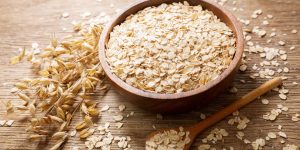Emerging research shows that a simple daily supplement may help reduce the biological aging process and improve long-term health.
Others are reading now
Aging affects both our appearance and the way our bodies function internally.
While lifestyle choices like exercise and a balanced diet can slow these changes, researchers have sought ways to better understand and manage the biological mechanisms behind aging.
Recent findings suggest that omega-3 fatty acids could play a key role.
As reported by WP Tech, a new study published in Nature Aging reveals that omega-3s may help slow biological aging, particularly when paired with vitamin D and regular exercise.
Also read
Study Tracks Aging with Epigenetic Clocks
Researchers from the University of Zurich monitored 777 Swiss seniors over three years to determine how omega-3s and other interventions affect biological aging.
Participants were divided into groups that took vitamin D, omega-3 supplements, or participated in home exercise sessions.
The team used “epigenetic clocks” to measure changes in the participants’ biological age.
These clocks assess modifications in the epigenome, such as DNA methylation patterns, which can reveal whether someone’s biological age differs from their chronological age.
Heike Bischoff-Ferrari, the study’s lead author, noted that omega-3s impact aging by reducing inflammation.
“Vitamin D and exercise offer similar benefits, so we wondered if combining them would amplify the effects,” she said.
Slower Aging and Additional Health Benefits
The study found that omega-3 supplementation moderately slowed biological aging by about three months across multiple epigenetic clocks.
When combined with vitamin D and exercise, the effect increased to four months.
These interventions also lowered the risk of cancer, reduced fall rates by 10%, and decreased infections by 13% compared to participants who did not follow the regimen.
While these effects might seem small, Bischoff-Ferrari emphasized their potential impact on population health if sustained over time.
However, the researchers acknowledged certain limitations, including the fact that the study group was limited to Swiss seniors and that epigenetic clocks are not a perfect measure of biological aging.
Omega-3s are found in fish, seafood, flaxseed oil, and walnuts. The study’s authors recommend about 1 gram per day, cautioning against excessive intake due to potential health risks.








